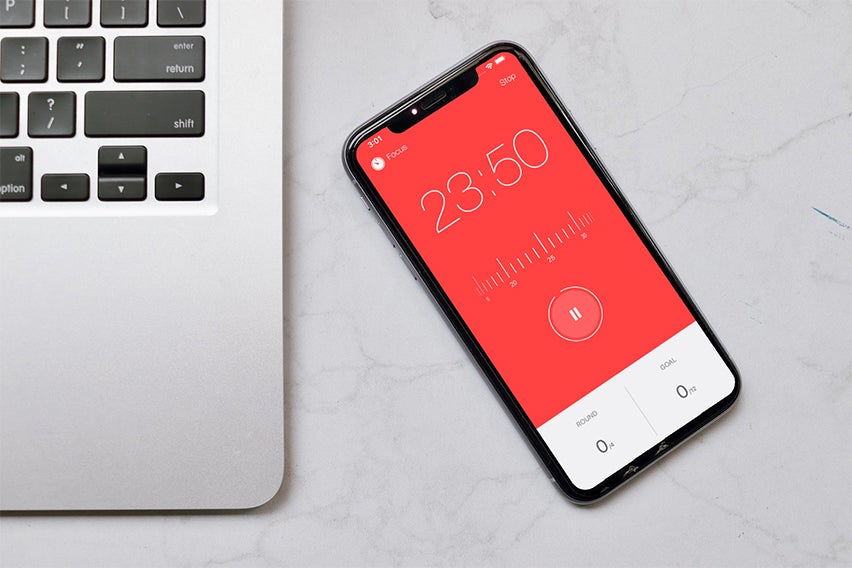Part-Time Vs Full-Time Employees: Everything You Need to Know

Businesses are going to have different types of employees. Some might only offer hourly employee positions and others might have salaried employees. It all depends on the type of business and the tasks that need to get completed on a daily basis. But, for most roles, the difference between being part-time and full-time comes down to the number of hours worked.
Understanding the differences between part- and full-time work can help you find what will work best with your schedule. There can be benefits to working one over the other. But there can also be some disadvantages. It all depends on your personal needs.
Here is everything you need to know about part-time vs full-time employees.
Here’s What We’ll Cover:
How Many Hours Are Considered Part-Time or Full-Time?
Do You Have the Same Rights as a Part-Time Employee Compared to Full-Time?
Are There Limits to the Hours You Can Work?
Advantages to Working Full-Time
Advantages to Working Part-Time
How Many Hours Are Considered Part-Time or Full-Time?
There can be a little bit of a variation in the number of hours needed to qualify as full-time employment. That said, most employers consider a full-time workweek to be 35 hours and over. There isn’t an official amount of hours that would classify a job as full-time.
It can also vary depending on the industry that you work in. Make sure you double-check with your employer or confirm the details of your employment package. Sometimes 30 hours per week can get considered full-time, yet this is usually the minimum.
Part-time employment has even more possible fluctuation. They can be anywhere from just a couple of hours per week all the way up to 35 hours per week. But again, it depends on the role and the industry that you are working in. And similar to full-time hours, part-time hours don’t have an official classification.

Do You Have the Same Rights as a Part-Time Employee Compared to Full-Time?
Even if you’re considered a part-time employee, your employer must treat you the exact same as they would treat a full-time employee. This means you have the same rights and can’t be treated unfairly even if you work fewer hours.
Here are a few of the same rights part-time workers have compared to full-time workers:
- Your rate of pay, including redundancy pay and sick pay
- Any holiday or leave time, which includes maternity and paternity leaves
- Any pension contributions or entitlements
- Any training or career development opportunities
- The opportunity to get promoted
There are a few other factors that can be a little different for part-time employees, however. Things like health insurance or overtime pay might vary, as well as bonus structures. These details should get outlined in your employment contract or explained in your onboarding process.
Are There Limits to the Hours You Can Work?
There are a few exceptions, but the maximum number of hours a full-time or part-time employee can work is 48 hours in a week. This is averaged over a period of 17 weeks. But, some jobs and roles are required to exceed the maximum amount of working hours.
These can include working in the armed forces or emergency services, such as police or fire. They can also include some types of security and surveillance positions or other roles that require 24 hours staffing.
It’s worth noting that the maximum amount will vary even more when employees are under the age of 18. For more information and details, visit the government website.
Advantages to Working Full-Time
There can be several benefits to working full-time, however, these positions won’t work out well for anyone unable to commit to a full-time job. Here are some of the main benefits of working full-time hours.
- You can generate a higher yearly income
- You get access to full bonuses and incentives
- You can have higher pension contributions
- You have the possibility of health insurance and other additional benefits

Advantages to Working Part-Time
Similar to working full-time, part-time work might work best with your schedule. You might have other responsibilities in your daily life, or you might even work more than one part-time job. Whatever it is, there are advantages to working part-time.
- You can have a healthier work and life balance
- You can save on costs for childcare and commuting
- You can test out an industry or role to make sure it’s the right fit for your future
- There might be additional opportunities for overtime
- Part-time hours might be less stressful compared to full-time hours
Key Takeaways
The benefits to full-time and part-time employees come down to what works best with your personal situation. There isn’t a perfect recipe for figuring out what you should do, you just need to make sure you’re doing what’s right for you.
Knowing the differences between part-time and full-time allows you to figure out what works with your schedule. Plus, even if you are a part-time worker, you are still entitled to get treated the exact same as a full-time employee. The only difference is some bonus structures and benefits packages.
Full-time employees typically work a minimum of 35 hours per week, however, there is no official minimum. Part-time employees, on the other hand, can work anywhere from 2 hours per week all the way up to 35 hours. All of these details will be outlined in your employment package.
Did you enjoy reading this guide? Head over to our resource hub for more great content!
RELATED ARTICLES
 5 Best Free Time Clock Apps
5 Best Free Time Clock Apps An Ultimate Guide to Employee Productivity
An Ultimate Guide to Employee Productivity 6 Best Checklist Apps to Help You Stay Organized
6 Best Checklist Apps to Help You Stay Organized 5 Best Time Management Tools You Need to Know
5 Best Time Management Tools You Need to Know What Is Workforce Management & How Does It Work?
What Is Workforce Management & How Does It Work? 17 Team Building Activities & Games Your Team Will Love
17 Team Building Activities & Games Your Team Will Love